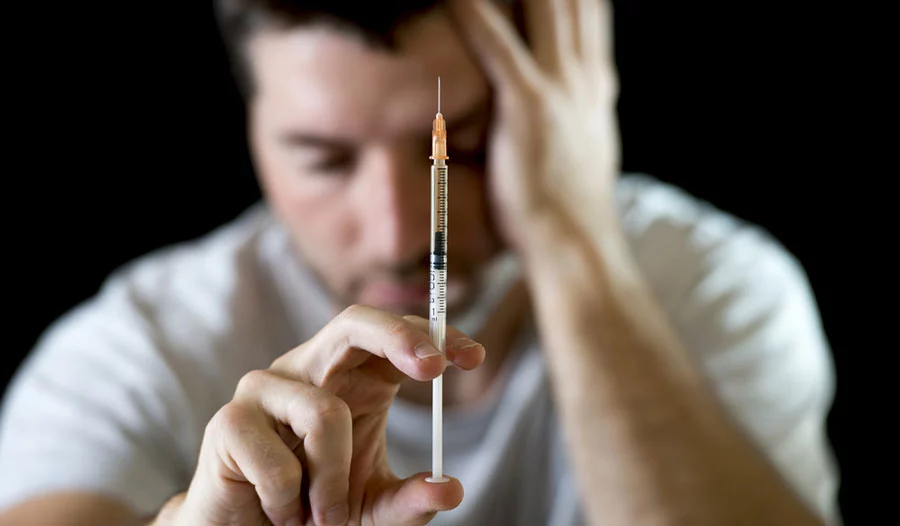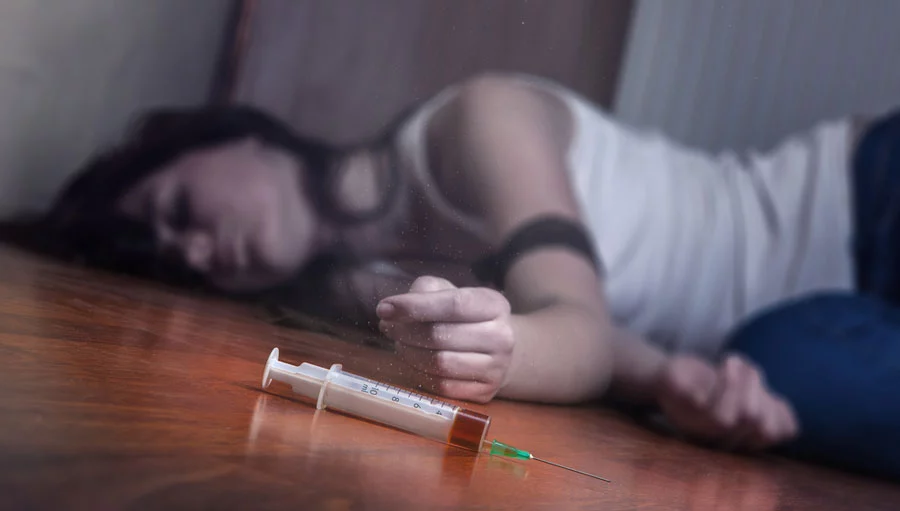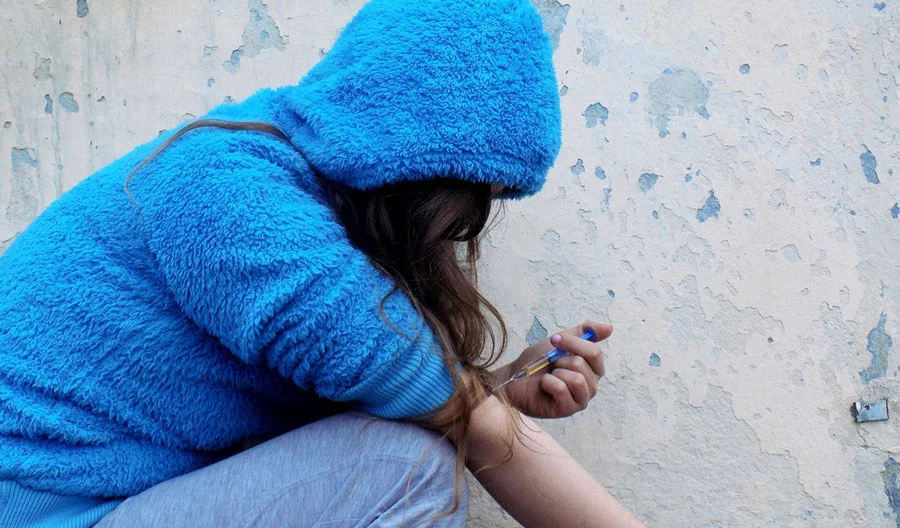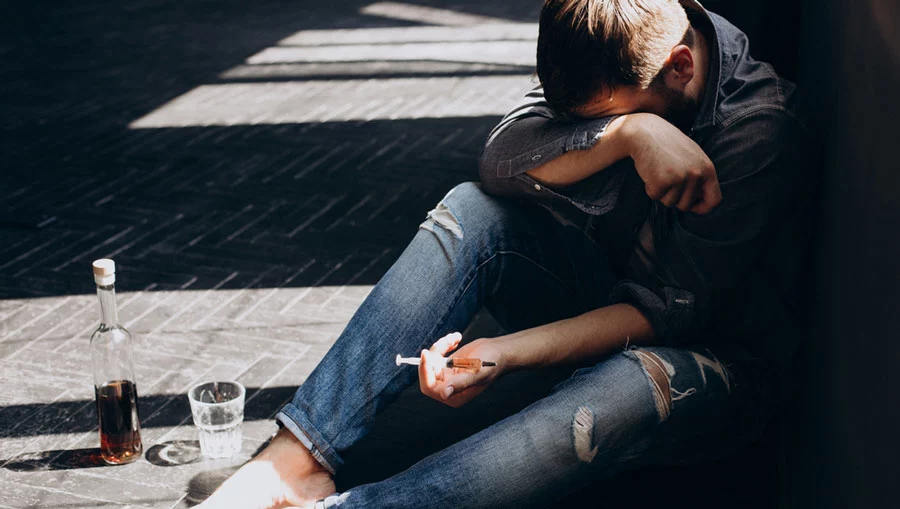Observing Symptoms and Getting a Loved One Help with Opiates
The struggle with heroin addiction can feel like living inside a cage. It’s a circumstance where one yearns for escape yet finds solace in the cruel familiarity of confinement. It’s like yearning for freedom, yet the stillness of captivity can deceive one into a surrendering calm.
There’s a profound loathing for the cage. But the idea of not confronting the complexities of the outside world brings comfort. To heroin users, the cage metaphor is a perspective that helps others understand the paradox of heroin abuse. For loved ones, knowing the signs of heroin use can be a way of understanding the frustrations and trapped feeling that are created by prolonged opiate dependence.
It’s important to remember that no one chooses this cage when they start out. The causes and risk factors are vast. But help is available to unlock the door. South Shores Recovery can give you or your loved one the tools to pick the lock and escape heroin addiction.
Understanding Heroin
Heroin is highly addictive. It comes from morphine, a naturally-occurring substance extracted from the tiny pod of the opium poppy plant.
It is a white or brown powder or a black sticky substance called “black tar heroin.” Heroin can be snorted, smoked, or injected, making it an IV drug. It can spread blood-borne pathogens.
It breaks through the blood-brain barrier quickly, binding to the opioid receptors. That’s why the effects of heroin, and other drugs in the opioid family, cause fast euphoria. That feeling is a key cause of heroin addiction.
What Causes Heroin Addiction?
The most commonly cited causes of heroin addiction are regular use, a history of mental illness, and family history.
- Prolonged heroin use causes heroin users to become physically dependent. That worsens the problem as they develop a tolerance to this illegal drug. Thus, they engage in more heroin use.
- Someone with mental health disorders, or co-occurring disorders may also be more likely to abuse heroin. Co-occurring disorders may include post-traumatic stress disorder, anxiety, depression, or other mental illnesses that may lead to abusing this drug or other substances.
- If a first-degree relative has struggled with substance abuse, this can increase one’s risk of addiction.
- The most common cause, according to the National Institute of Drug Abuse, is addiction to a prescription opioid. Their data reveals, “about 80 percent of people who used heroin first misused prescription opioids.”
Heroin abuse alters the brain’s opioid receptors, causing increased dependence. It makes using this highly addictive drug a relapsing disease. Understanding heroin is key to connecting the effects of heroin addiction to the healing process.
What are the Signs and Symptoms of Heroin Abuse?
Knowing the common signs and symptoms to look for can alert you to heroin addiction. These mental, physical, and behavioral symptoms, signs, and tells of heroin addiction help overcome its hold.
The signs of heroin use can present differently in individuals. But here are some key signs, symptoms, and factors to know.
Behavioral Health Symptoms and Signs of Heroin Addiction
Identifying behavioral signs is vital in addressing heroin abuse. This can include some notable behavioral changes. The effects of heroin abuse on someone may include:
- Frequent borrowing or stealing money to buy more heroin
- The presence of drug paraphernalia, including needles, spoons, or foil wrappers
- Uncontrollable drug-seeking behaviors
- Avoiding family members or once-close friends
- Neglecting responsibilities at work, school, or home
- Wearing trousers and long sleeves, even in warm weather, to hide needle marks
- Frequent episodes of unexplained euphoria, followed by a period of fatigue and drowsiness
- Risky behavior, such as unsafe sex or reckless driving
- Legal troubles related to drug use, such as arrests for possession
- Sudden, dramatic weight loss
Emotional or Mental Health Signs and Symptoms of Heroin Abuse
A person abusing drugs may display emotional and mental health changes. Emotional or psychological dependence can present as the following behaviors in a heroin user:
- Sudden, unexplained mood swings
- Anxiety, restlessness
- Depression or bouts of extreme sadness
- Increased secrecy, hiding drug use
- Isolation from friends and family
- Lack of motivation or interest in activities once enjoyed
- Difficulty thinking clearly or making decisions
- Displaying a sense of fear or paranoia without a clear cause
- Difficulty managing responsibilities and daily tasks
- Uncharacteristic dishonesty or manipulation
What are the Physical Signs and Symptoms of Heroin Addiction?
Common physical symptoms of heroin abuse in the physical realm can be evident in the person’s appearance and health. These effects of heroin abuse may include the following unpleasant symptoms:
- Needle marks, bruises, or “track marks” on the skin from injections
- Infections or abscesses at injection sites
- Dramatic weight loss or changes in physical appearance
- Neglecting personal hygiene
- Constant runny nose or frequent nosebleeds if heroin is snorted
- Small pupils (aka pinpoint pupils)
- Flushed skin or frequent episodes of sweating
- Drowsiness or nodding off at inappropriate times
- Slowed or shallow breaths
- Constipation, vomiting, or other digestive issues
- Disrupted sleep patterns, including sleep interruptions and insomnia
Red Flags, Symptoms, Signs of a Heroin Overdose
Heroin overdose is a life-threatening medical emergency that requires swift action. When a person takes too much heroin, it can result in an overdose. This drug is a central nervous system depressant. That means overdosing can lead to severe respiratory depression, heart failure, or even death.
Knowing someone has overdosed on heroin is vital for timely intervention. Watch for the following signs and symptoms:
- Slow and Shallow Breathing: Heroin overdose often results in respiratory depression, which can manifest as slow, labored, or shallow breathing. In severe cases, breathing may stop altogether.
- Blue Lips and Nails: This is a sign that the body isn’t receiving enough oxygen due to slowed or stopped breathing. The skin around the lips and fingertips may appear blue.
- Pinpoint Pupils: One of the physical signs of a heroin overdose is “pinpoint” pupils. Opioids like heroin can dramatically reduce pupil size.
- Loss of Consciousness: A person overdosing on heroin may become exhausted or lose consciousness completely. That’s from decreased oxygen to the brain from slowed breathing.
- Disorientation or Confusion: Overdosing on heroin can affect the nervous system and brain function, leading to disorientation, confusion, or delirium.
- Weak Pulse or Low Blood Pressure: An overdose can cause a weak pulse and low blood pressure, reflecting the body’s struggle to circulate blood effectively.
- Muscle Spasticity: The person may experience muscle spasms as the nervous system reacts to substance abuse.
If you see these overdosing on heroin signs, call 911 immediately. While waiting for help, keep the person awake and sitting up, if possible. That can help prevent possible choking from vomiting. Don’t leave the person alone. They need immediate and professional medical attention.
With prompt intervention, it’s possible to reverse the effects of a heroin overdose. Fast action can prevent long-term damage or death. Overdose withdrawal can take a few hours to a couple of days.
Causes and Risk Factors for Physical Dependence on Heroin
Long-term heroin use can lead to physical dependence, which occurs when the body adapts to the drug and requires more to achieve the same effect. This dependence causes increased risk factors for overdose and other health complications.
Here’s the good news–understanding the causes and risk factors is a key step in the battle to break free from heroin addiction.
Heroin Treatment: Don’t Fear the Withdrawal Symptoms!
Recovering from heroin addiction is a complex process that often requires a multifaceted approach. Each phase is crucial in helping individuals shape better mental and behavioral health and get sober.
- Detoxification: The first step in heroin treatment is detoxification, or the body shedding the drugs. Heroin Detox can involve unpleasant withdrawal symptoms. Common symptoms during heroin withdrawal include nausea, anxiety, agitation, and in severe cases, seizures. Due to the severity of these withdrawal symptoms, detox should always be done under the supervision of medical professionals to manage these heroin withdrawal symptoms and ensure safety.
- Inpatient or Residential Treatment Center: Individuals often go to inpatient or residential treatment after successful detoxification. They live at a treatment center and receive round-the-clock care. This environment allows individuals to focus on their recovery and any mental illness without distractions. Treatment may involve individual and group therapy, exploring family history with drug use, medication-assisted treatment, and complementary therapies.
- Outpatient Treatment: Many individuals continue healing in an outpatient setting after inpatient treatment. This allows them to receive treatment for the effects of heroin addiction and co-occurring disorders while re-entering regular life. Outpatient treatment typically includes behavioral health therapy and support groups and may involve medication-assisted treatment.
- Aftercare and Maintenance: The final phase of heroin addiction treatment focuses on maintaining sobriety and preventing relapse over the long term. Aftercare can include ongoing therapy, support groups like Narcotics Anonymous, sober living environments, and other resources. This phase is crucial. Addiction is a chronic condition with a risk of relapse, even after sober periods.
South Shores Detox and Recovery Is Here to Help
South Shores Detox and Recovery provide compassionate care. We can treat those struggling to break free from the iron cage of heroin addiction. From the first phase of heroin withdrawal to long-term recovery, we’re here to support you.
We believe that every individual deserves the chance to reclaim their life. Help is just a few clicks away. Connect with us today for help for you or your loved one now!





